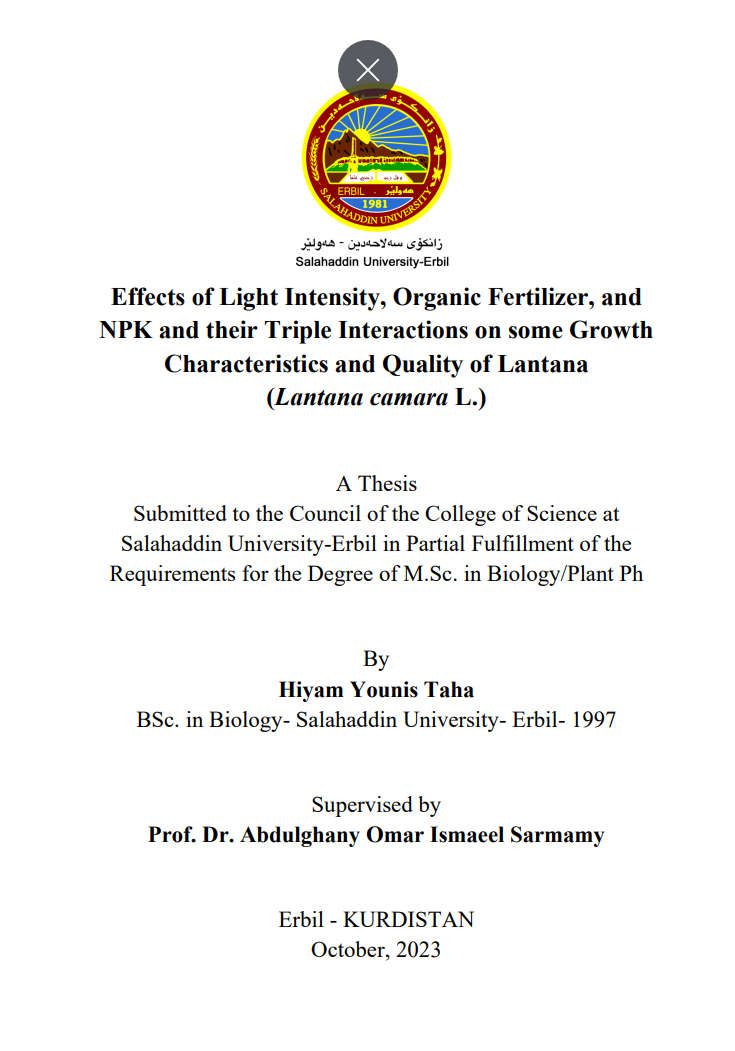
SUMMARY
Lantana plant (Lantana camara L.) belongs to Verbenaceae family, is a species of flowering plant, very adaptable, which can inhabit a wide variety of ecosystems and it is widely planted in the city parks. It is more popular as a toxic weed rather than medicinal plant in most of the countries, responsible for infesting many economical crop plants and has some toxic effects by accidental ingestion among the livestock. In the present study, a factorial pot experiment (3×2×3 ) was conducted using randomized complete block design (RCBD) with three replications to examine the effects of light intensity ((L1:100% LI), L2:80% LI) and (L3:120% LI) of the ambient light intensity), organic fertilizer ((OF1:0.0) and OF2:5% )peat moss incorporated with the soil v/v) and chemical fertilizers (NPK combinations 20:20:20) at (CF1:0.0 kg/ha), (CF2 200 kg/ha) and CF3:300 kg/ha)) and their interactions on vegetative growth characteristics, yield and some chemical contents of Lantana vegetative part. The study was applied in the greenhouse and laboratories of the Department of Biology, College of Science at Salahaddin-Erbil University during growing season (2022-2023).
The Results showed that L2, OF2, CF2 and L2OF2CF3 increased Plant height; but L3, OF2, L3OF1CF1 and L3OF1CF3 decreased No. of branches; OF1 and L3OF1CF1decreased No. of leaves; L2, OF1, CF2 and L3OF1CF2 decreased relative water content of lantana leaves. L2,L3 OF2,CF1, CF2 and all interaction treatments decreased root diameter except L1OF1CF3 and L2OF1CF2; L2OF1CF2, L3OF1CF1, and L3OF1CF3 decreased leaf fresh weight and leaf dry weight; CF1 and L3OF1CF1reduced shoot dry weight; L2, L3, OF2, CF1 decreased biological yield compared to L1OF1CF2. L2, OF2. CF1 and L2OF2CF3 increased chlorophyll a; L2, OF2. CF3 and L2, OF2. CF3 increased chlorophyll b and total chlorophylls. L3, OF2, CF2, L3OF1CF1 and L3OF2CF3 increased carotene, total protein and carbohydrate contents.
